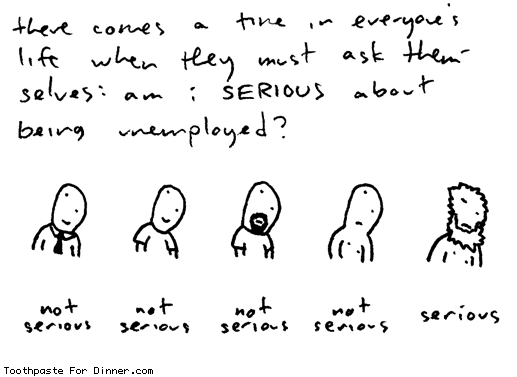
The better you bake those pie charts now, the better they'll be when you start gorging yourself on them later. If you are just starting out, and you want low maintenance retirement savings, it is my humble pie opinion that you look at a mutual fund that offers a target retirement fund.
A target retirement fund is a mutual fund that allocates a certain percentage of each share to different markets, adjusting the percentages as your target date of retirement nears. Each share addresses asset allocation, rebalancing, and fund selection for you. For example, the mutual fund company T. Rowe Price has a target retirement fund 2045. This assumes you are retiring within a few years of 2045. The Retirement 2045 fund currently has an asset allocation of 92.25% invested in stocks, the remainder in fixed income (ie various bonds and some cash). Your asset allocation will slowly shift to less stocks and more fixed income as you near (and pass) the year 2045. In contrast, the Retirement 2005 fund has an asset allocation of only 55.25% in stocks, the remainder in various bonds and some cash. Despite it being two years past the targeted retirement date of this fund, the slim majority is still invested in stocks. Today's life expectancy is 80, with a 45% chance that a 55 year old today will live past 90. The aggressiveness, and therefore risk, of today's retirement portfolio reflects these realities.
What exactly is asset allocation? It is basically what types of stocks and bonds you buy, according to how much risk you can/should take. Let's say you are medium risky; you are flat out broke and can handle the up and down ride of the price of Google, but you aren't about to bet the house on it. Let's say you are also 35 years old. So you're young, but no spring chicken. Asset allocation takes into account both risk tolerance and age. A significantly larger portion of your portfolio would be in stocks, because you gotta be in it to win it, maybe even dipping a toe or too in riskier sectors like technology. A smaller but necessary percentage would be in various fixed income assets, ie bonds, because the returns are more predictable and usually do not move in tandem with the stock market. Of course, as your age increases your risk tolerance decreases. Then your asset allocation woud move more money into the less risky bonds, and trim down the percentage of stock holdings. Asset allocation is used to fend off the ups and downs of the market with diversification. Basically, you don't put all your eggs in one basket, because if the basket breaks you're $hit out of luck.
Of course, fact is nobody can predict the future. I don't care what they say to your insomniatic ass on late night infomercials. And while the stock market is a closely studied beast with unpredictable twists and turns, it is asset allocation that forces you to buy low and sell high. "Buy low and sell high"- that famously prescient adage that nobody does when push comes to shove and the Dow just dropped its pants on live national tv. Let's say, hypothetically, that of the part of the pie that is in stocks, 50% is in the large US companies (large caps), 20% in middle sized US companies (mid caps), 15% in small US companies (small caps) and 15% in international stocks. The market obviously has more moves than Usher, so after 3 months you look at your pie and lo-and-behold you're holding the bag with only 30% invested in large companies and 35% in international. Why did this happen? Because the value of the large companies went in the toilet, and places like India and Brazil are wiping the mat with the big boys.
Rebalancing is what keeps asset allocation in check. What has increased in value, and therefore taking up more space in the pie, is sold, and then purchases the underperforming asset that has shrunk its section of the pie. You buy what's in the gutter for what's in the sky, and fall back in line with your original asset allocation. Historically and on average, asset allocation and rebalancing will give you the biggest pie; higher returns. It's also a little much to do in your free time on a quarterly basis, which is why a target retirement fund is a brilliant choice for those who want the money managers to manage their money for them.
But back to T. Rowe Price. I like them because when I first started out I had squat, and most funds require minimums. T. Rowe Price allows you to start with nada, so long as you do automatic monthly investments of at least $50 a month. Again, if you open a ROTH IRA, be aware that this year's maximum is $4,000 a year ($333.33/month), and *** you cannot invest more in an IRA than you earn in income***. In other words, what is reflected in your W-2 and/or 1099. Next year the maximum increases to $5,000. T. Rowe Price is hardly the only company. Both Vanguard and Fidelity have retirement funds, and they are well known and respected companies. Vanguard differs from other mutual fund companies, though, because their mutual funds are index funds. I'm a fan of index funds, funds whose holdings match the index they're tailing, but at the time I didn't have the minimum investment.
I would suggest googling around and learning more about these three companies, what their minimum investments are, and how their asset allocation differs. The highlighted links within this post should be helpful. Even if you only start out at $50 a month, and then every few months you jack it up a little until eventually you can meet the maximum contribution, it is better than nothing. Just start. Start researching, start sending for forms, start making money. Thankfully saving, like spending, tends to inspire more of the same.
 Why, a 1939 edition Paideia: The Ideals of Greek Culture.
Why, a 1939 edition Paideia: The Ideals of Greek Culture. 
































